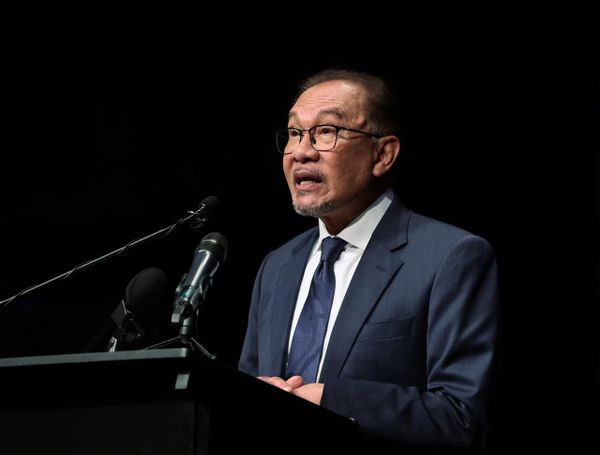KUALA LUMPUR, Oct 5 — The ringgit has yet to reach its fair value despite its recent rise against the US dollar and emerging as Southeast Asia’s best-performing currency, said Prime Minister Datuk Seri Anwar Ibrahim.
“It is still undervalued (even) at RM4.10 per US dollar. People know it used to be RM3.80, but it is wise for it to strengthen gradually without intervention.
“Let the market forces play. This would reflect confidence in government policies and how we implement reforms," he told CNBC in an interview.
On a Friday-to-Friday basis, the ringgit fell to 4.2155/2240 against the US dollar, down from 4.1230/1280 the previous week.
BMI Country Risk & Industry Research (BMI), a unit of Fitch Solutions, revised its end-2024 forecast for the ringgit to RM4.00 per US dollar, from RM4.55 previously, reflecting the currency’s robust performance in the third quarter of 2024.
Some analysts are more optimistic, predicting the ringgit could reach RM3.55 against the greenback.
While acknowledging that a stronger ringgit might raise concerns among exporters, given Malaysia's role as an export-driven economy, Anwar said the issue is not significant as the currency remains undervalued.
“Yes, it will cause some concerns among exporters, but not too many and not too serious, as the ringgit is still undervalued. However, it has benefited immensely because we are a trading nation and import a lot from overseas,” he said when asked whether a stronger or weaker ringgit would be more favourable for Malaysia.
Meanwhile, Anwar said the government is steadfast in achieving its gradual fiscal consolidation target by reducing national debt, while continuing to invest in improving the quality of life for all Malaysians.
He said the Madani government has inherited a debt of RM1.5 trillion, with the annual fiscal deficit reduced to 5.0 per cent of gross domestic product (GDP) in 2023, down from 5.6 per cent in 2022.
“The annual fiscal deficit is gradually declining, (along with) borrowings, which have gone to RM93 billion in 2023, and (with a target of) RM86 billion this year. While this is quite substantial, it is not enough,” he said.
Anwar emphasised that while the government has set targets for reducing the fiscal deficit and national debt, it will continue to invest in areas such as education, public health, and infrastructure to enhance the quality of life for Malaysians.
The national debt currently stands at 64 per cent of GDP, with the government aiming to reduce this figure to at least 60 per cent in stages.
Anwar previously noted that the fiscal deficit has been lowered to 5.0 per cent of GDP in 2023 from 5.6 per cent in 2022, with a projection of further reduction to 4.3 per cent this year.
— Bernama




